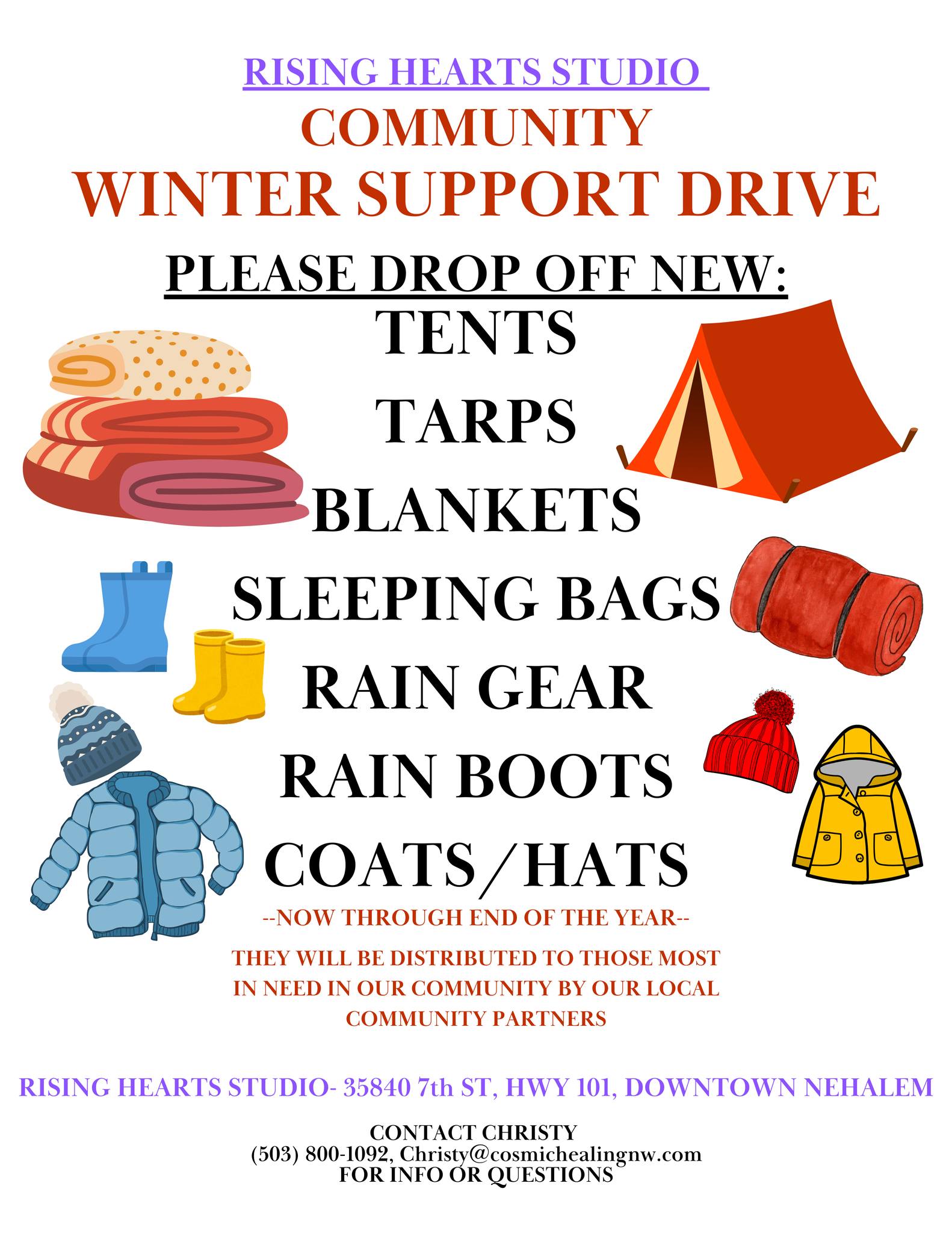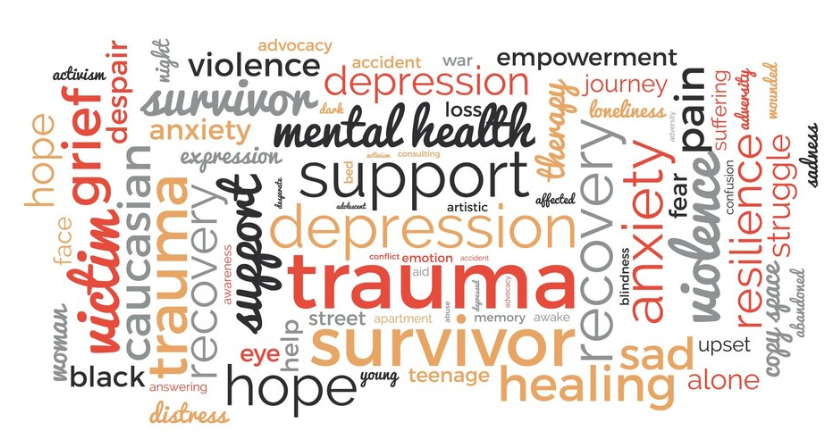By Christy Kay, Cosmic Healing NW at Rising Hearts Studio
As we move into the winter, and a new year, it is important to remember to take gentle care of yourself. Self-care is not community care, as some suggest. If you’re not caring for yourself, you cannot show up in the ways that help within your community. And the current state of the world dictates that we begin to strengthen our roles in community as best we can. So, though self-care is not community care, we need to care for ourselves more than ever.
Trauma is defined as an emotional response to a distressing event that can have lasting negative effects on a person’s life. If you look around you, there is much to distress about. Bearing witness to the trauma others can have the same devastating consequences as living trauma yourself, and is called trauma exposure. Our bodies, minds and hearts do not necessarily distinguish between the two. Sometimes we minimize our own trauma responses because they are trauma adjacent, meaning, we didn’t have the experience but someone we love or care for is. This can be personal or communal. The physiological and psychological effects can be similar between PTSD and trauma exposure, and the pain of others can have debilitating effects on our own well-being if we are not caring for ourselves.
If you find yourself running away from or avoiding others because you just can’t take in anymore – pay attention. This is a trauma response. Do you find yourself feeling hopeless or helpless when engaging in the world, or perhaps you wake exhausted and are suffering physical ailments – these can also be responses to trauma exposure. Perhaps it is feelings of anger or guilt, or fear. How can this be happening to others, but not to me, how can I prevent it happening to me? Maybe you are feeling an inability to empathize, and feel numb, or have leaned into an addiction to cope- over working is an addiction, as is using coffee or other stimulants to get through a day. Do you feel like you can never do enough to help, or that you are the only one who can do the work needed to make changes?
Stop for a moment, and just think about these things. Do you recognize yourself in them? Are you suffering from trauma exposure? I think perhaps most of us are.
So, what can we do? There is much to discuss here, but today I am going to begin with how to be “Stress Resistant”. Dr Bessel A van der Kolk, a leading expert on trauma and its effects, has suggested there are several things we can do to become “stress resistant persons.” That is, there are several traits that distinguish between those who are debilitated by trauma, or trauma exposure, and those who can integrate those experiences into their lives and adapt. The first trait is a sense of personal control. This means that you have the ability to perceive and understand how your own actions, and how they feel, can shape your own capacity to influence the course of your life. You DO have control. You know you can make choices that help you and those around you. Another tenant of stress resistance is the ability to pursue personally meaningful tasks. The ability to be present and engaged in your own life will help you to be active and not passive during challenging times. Taking moments to slow down and see the wonder of life, amidst the chaos. To be able to sit under a tree, or watch the waves of the ocean, or a child play, or a dog run with abandon, to practice yoga or meditation, to create – to write, paint, or play music – to notice and engage in joyful pursuits, will build more capacity to open to challenging times and move through them.
Of course, it is also helpful to make healthy lifestyle choices when working to actively be a stress resistant person. The healthier our bodies, the more they can adapt to the stressors of life. This can be a general avoidance of known dietary stimulants like refined sugars, caffeine or nicotine. It can be finding ways to actively exercise and move your body. It also includes finding time to relax and unwind- to meditate and be still. It can look like going to bed early, having a calming bedtime routine, getting good restful sleep.
Lastly, creating healthy relationships with others who can serve as a buffer in dealing with difficult situations, or being able to offer social support through tough times, is a needed trait of being healthy in a stress and trauma filled world. Seek out like-minded people that can offer you support, encouragement, and a safe space to be when you need help. Build a community around you that has the same values, beliefs, and commitment to the work needed, work that you can do. We DO need each other.
Stay tuned for more tips, suggestions and ideas on how to live through these times, to care for ourselves and others, in a healthy way that allows for healing and moving through trauma and life’s difficulties. How to build community, and systems that work effectively for the good of all.
If you would like additional information about ways to heal, go to www.cosmichealingnw.com or visit Christy at Rising Hearts Studio during store hours – Thursday thru Sunday 11 am to 3 pm.
Just a reminder that Rising Hearts Studio, 35840 7th St (Hwy. 101), downtown Nehalem, is a Drop Off Site for Winter Gear! Please bring in your tents, tarps, blankets, sleeping bags, rain gear and rain boots, coats and hats – and our Community Partners will be sure to get them to those most in need right now.
THANK YOU!



